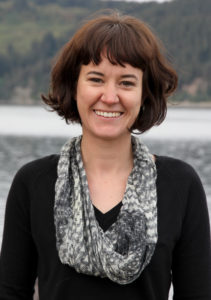
By Betsi Oliver
Outreach Coordinator
After the Exxon Valdez oil spill, a Council project assessed the social impacts of the spill and developed resources that could be used by small communities to help with healing. An oil spill has complex and long-lasting impacts on the social and emotional health of a community, more than a natural disaster. Substance abuse, domestic violence, self-isolation, and suicide all increase as a result of stress that can be felt throughout a community. Activities that strengthen community connectedness help counteract these effects.
Mental health professionals today are making comparisons between the ongoing mental health impacts of disasters such as the BP Deepwater Horizon oil spill and those of COVID-19. Many of the elements that make an oil spill so challenging can also be applied to the current COVID-19 crisis, in particular the high levels of uncertainty about when the crisis will end, how long recovery will take, and whether individuals are doing the right thing in response. Like an oil spill, the pandemic will have long-lasting impacts on individual physical health, the economy, and communities’ social fabric. All of this has a cumulative impact on mental health.
After the Exxon Valdez oil spill, many people needed a friendly ear to listen to their struggles and stories with empathy. The Council sponsored creation of the Peer Listener Training, which empowers residents in our region to support each other through effective listening. In a disaster, mental health professionals are swamped and costly. In small communities, like many rural villages in Alaska, professional support may not be readily available. A neighbor who shares your culture, lifestyle, and experience may be more approachable than a professional counselor, especially for those who may not have a positive view of mental health counseling.
Trained peer listeners, unlike therapists or counselors, do not give advice and are not experts. Instead they actively listen and help their peers vent strong emotions, feel heard, and have their experiences normalized. A peer listener is connected to resources in the community and knows when to make referrals to professionals or other support systems.
The Council offers a “train the trainer” event every few years to individuals who are positioned to bring the training home to their community. Trained peer listeners increase the resilience of the Exxon Valdez oil spill region should another disaster threaten the fabric of life so deeply. One of the primary takeaways is that even a regular citizen, someone who is not a mental health expert, can make a big difference in their community. Checking in on neighbors, asking intentional questions about well-being, and listening with empathy make a big difference for connectedness and healing. These lessons apply broadly, to all disasters that impact our communities.